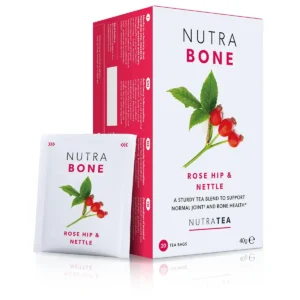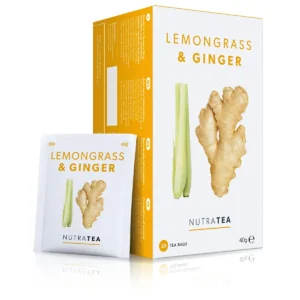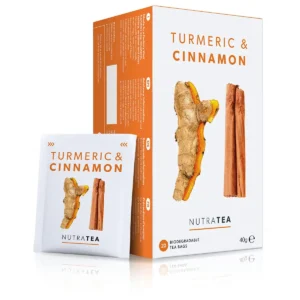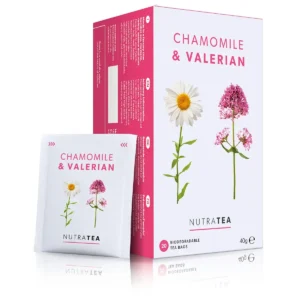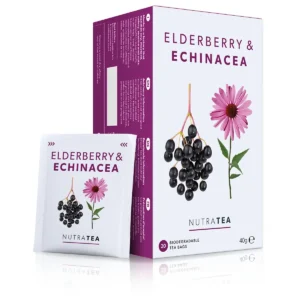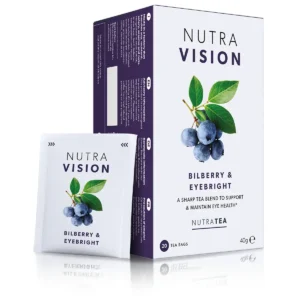NutraBlog
Herbal tea for hayfever – is there one?
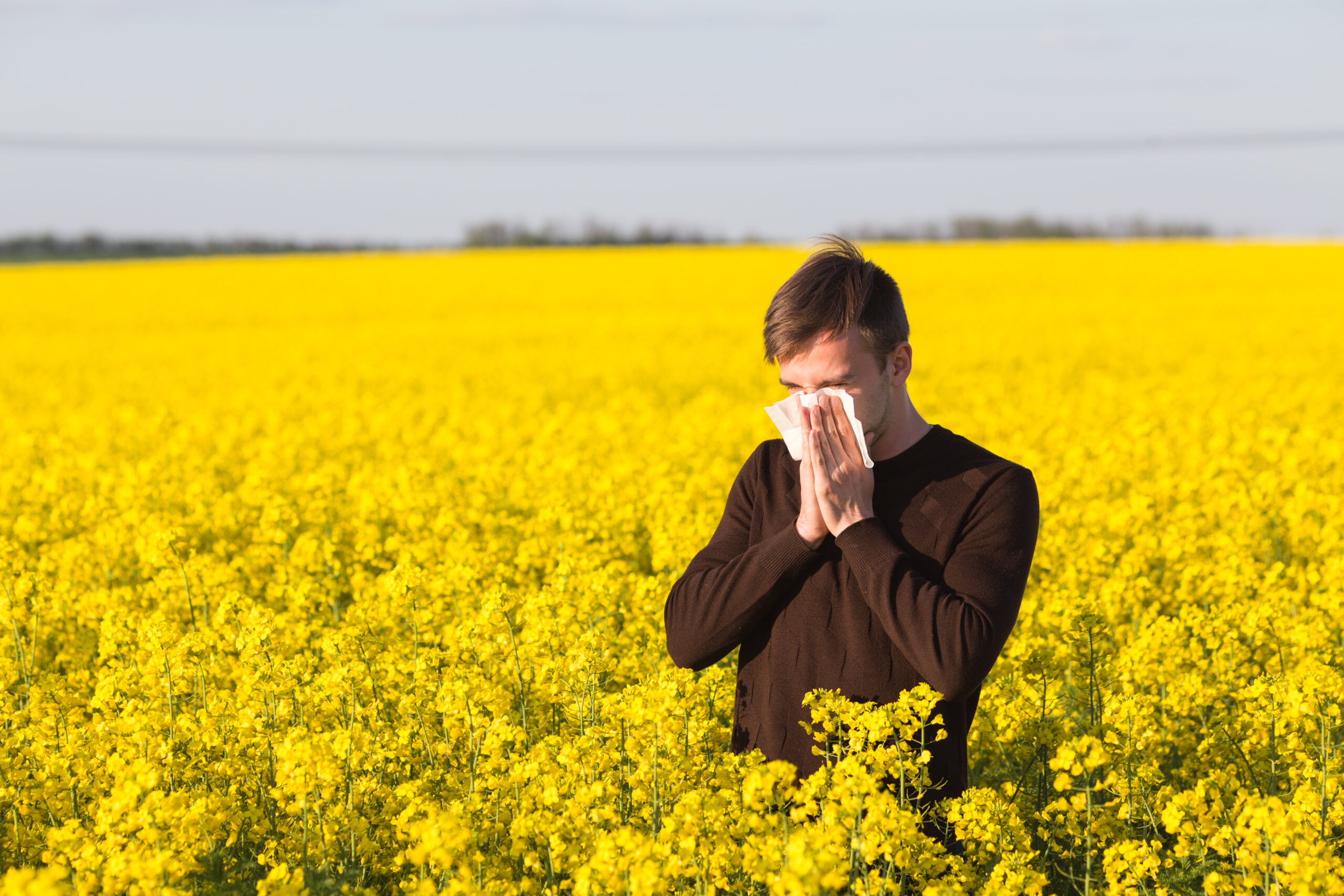
With one in five people suffering from hay fever and pollen count on the rise, the warmer days ahead can be a difficult time.
Hayfever can disrupt our daily lives, with symptoms like nasal stuffiness, sneezing, coughing, itchy nose, red eyes, and many more. It’s not just a minor inconvenience but a condition that can truly affect our quality of life.
While many over-the-counter treatments for hay fever are available, such as antihistamines in nasal sprays, tablets, and eye drops, they’re not always the best solution.
That’s especially true if you prefer natural remedies over medication.
Dive in with us below as we’ll explore an alternative approach and discuss whether there is a herbal tea for hayfever.
What is hayfever?
Before going directly into the herbal tea for hay fever, let’s quickly define the allergy.
According to the NHS, hayfever is:
“Hay fever is a common allergy that causes sneezing, coughing and itchy eyes. You cannot cure it, but there are things you can do to help your symptoms or medicines you can take to help.”
Hayfever is caused by the fine powder produced by plants known as pollen. This allergy is often triggered when pollen comes into contact with your mouth, nose, eyes, and throat.
The typical time for hayfever to occur is during late March-September when the pollen count is the highest. Symptoms of hayfever can last for several weeks or months- to know more about the common symptoms visit the NHS website.
There’s no cure for hay fever, and it cannot be prevented.
However, you can tailor your lifestyle by taking medications or making slight changes to your routine to ease symptoms.
Note: If your symptoms don’t improve after taking over-the-counter relief or get worse, you should make an appointment to see your doctor.
Is there a herbal tea for hayfever?
In short, there is no herbal tea for hayfever. First of all, hayfever has no cure, so there’s not one as far as herbal tea and allergies go. On the contrary, depending on the herbal tea you drink, some ingredients can help provide allergy relief and ease your symptoms. Not forgetting other packed health benefits of drinking herbal tea include supporting respiratory health, pregnancy, liver health, mental health, and your sleep.
In other words, you’ve got nothing to lose if you drink herbal tea in the summer. With the right ingredients, you may gain relief from some symptoms and enjoy other health benefits.
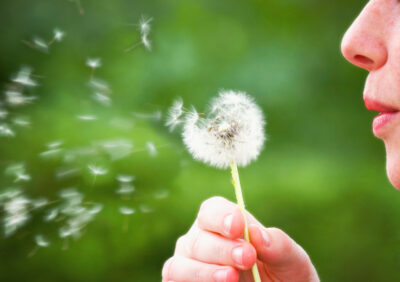
Herbal tea for hayfever- what ingredients to look for?
To pick the right herbal tea for your allergy, you need to look for ingredients with antioxidants and anti-inflammatory properties. These help stabilise your body’s cells inhibiting the release of histamines. Here’s a further breakdown to better explain them:
- Antioxidants: Help fight oxidative stress and strengthen your immune system.
- Anti-inflammatory properties: Inflammation plays a huge role in allergies, so you need ingredients which counteract this.
- Histamine reduction: Histamine is the main chemical which causes your nose, throat and eyes to inflame. Some herbal teas can help reduce this by stabilising your body’s mast cells that release histamine.
5 Teas that might support hayfever symptoms
In the world of herbal tea, there’s so many to choose from. But when it comes to herbal tea and allergies, there are a few which may help:
1.Nettle
Nettle may not be the first thing that comes to your mind when you think of hayfever relief. But this prickly plant does more than stinging, when drunk as a tea it can provide many medical qualities.
Stinging nettle tea is both popular in Eastern and Western medicine for its anti inflammatory properties which help ease coughing and congestion. There’s even animal studies and test tube studies which show stinging nettle can reduce many inflammatory markers.
Stock up on: NutraBone a tea normally used for helping with mobility, but is also linked to many other health benefits. One of the key ingredients in NutraBone is nettle alongside rosehip and Gingko biloba, full of antioxidants which help support your immune system.
2. Ginger tea
In tea, ginger herbal teas are often drunk to help with nausea and digestion. But this root does more than just that. It’s packed with antiinflammatory properties, particularly its active compound, 6-gingerol. This compound can potentially slow down the release of histamines and also reduce inflammation with its antioxidant properties.
While a widely available herb all over the world, in Thailand ginger has even been compared to the effectiveness an over the counter antihistamine tablet loratadine. This particular study has shown that ginger presents fewer side effects such as fatigue, drowsiness, dizziness and more- however more research is needed.
Stock up on: Lemongrass & Ginger a refreshing citrusy tea with an equal blend of both ingredients. Caffeine-free and available in tea bags for quick infusion, this tea supports your immune system and is packed with antioxidants. It also has other health benefits, such as facilitating digestion and hormonal balance.
3. Turmeric tea
One of the best herbal teas for hayfever symptoms is tumeric tea. You may already be familiar with this powerful ancient herb, which dates back over 4000 years to Ayurvedic medicine in India. Today, turmeric is a powerful herb used regularly in Eastern medicine and food in India, China, and the rest of the world.
You might have even heard of turmeric latte’s too! But, with tea turmeric can be transformative when it comes to reducing inflammation and allergic response. It holds an active compound known as curcumin with anti-inflammatory, antioxidant and antibacterial properties. Although more research is needed, a study on mice showed reduced allergic reactions to turmeric.
Not to mention turmeric also has a range of other health benefits acting as a cancer preventative, may help reduce inflammation in the joints, encourage the boost of neurotransmitters such as serotonin and dopamine, help fight chronic diseases and many more.
Stock up on: Turmeric & Cinnamon one of our best-selling herbal teas that support your immune and digestive system. It also can help support heart function, blood circulation, and joint and liver health. This tea is vegan, gluten free, soya free, sugar free, kosher, vegetarian and dairy free.
4. Chamomile
Chamomile tea is a popular drink worldwide and is known for its soothing effect. One unique factor about chamomile tea is that it is high in antioxidants and anti-inflammatory properties, which may help slowly reduce the symptoms of hayfever. Moreover, because it contains many antioxidants, chamomile tea may help promote good digestive health and sleep, protect against some cancers, and improve heart health.
Stock up on Nutri Relax, a tea known for its relaxing properties that are perfect for just before bed. Nutri Relax supports respiratory function, helping maintain the health of your upper respiratory tract and keeping the airways clear.
5.Elderberry
Elderberry is a flower and is widely used worldwide for its medicinal benefits. What’s fantastic about elderberry is that it’s packed with antioxidants, vitamin C and dietary fibre. Together, these provide strong support for your immune system, allowing your body to cope better with allergens such as pollen and reducing the intensity of symptoms linked to hay fever, such as coughing, sneezing, and congestion.
Stock up on: Elderberry & Echinacea a tea which helps support your immune system, is packed with antioxidants and has a soothing effect on your throat, pharynx and vocal cords.
6.Eyebright
Eyebright is a herb native to Europe. This tiny shrub is packed with anti-inflammatory and antibacterial properties, which can help with hay fever. It’s also high in antioxidants, which can help neutralise free radicals in your body and limit oxidative stress. Some common benefits linked to consuming eyebright are reduced eye inflammation, relief from colds and sinus problems, reduced skin irritation and more.
Stock up on Nutravision, a low-caffeine herbal tea containing a blend of eyebright, green tea, bilberry, kiwi fruit, and orange pepper. Rich in antioxidants, this tea supports eye health and function, encouraging blood flow and reducing the risk of puffy eyes in the summertime.
The bottom line on herbal tea for hayfever
Overall, there’s no herbal tea for hay fever that exists. That’s because there’s no cure for hayfever at present! The best herbal teas to help with hayfever symptoms contain anti-inflammatory properties and are high in antioxidants.
Whenever possible, look for teas that include turmeric, ginger, elderberry, chamomile, or nettle. While some of these types of teas can offer some relief from hayfever symptoms, everyone’s response is different.
If you find yourself experiencing severe hay fever symptoms or ones that persist for some time we suggest seeing your G.P. They may be able to devise a treatment plan to help you manage it more easily.
Looking to drink herbal teas this summer? Check out our article on the health benefits of herbal teas for summer and our recommendations.

